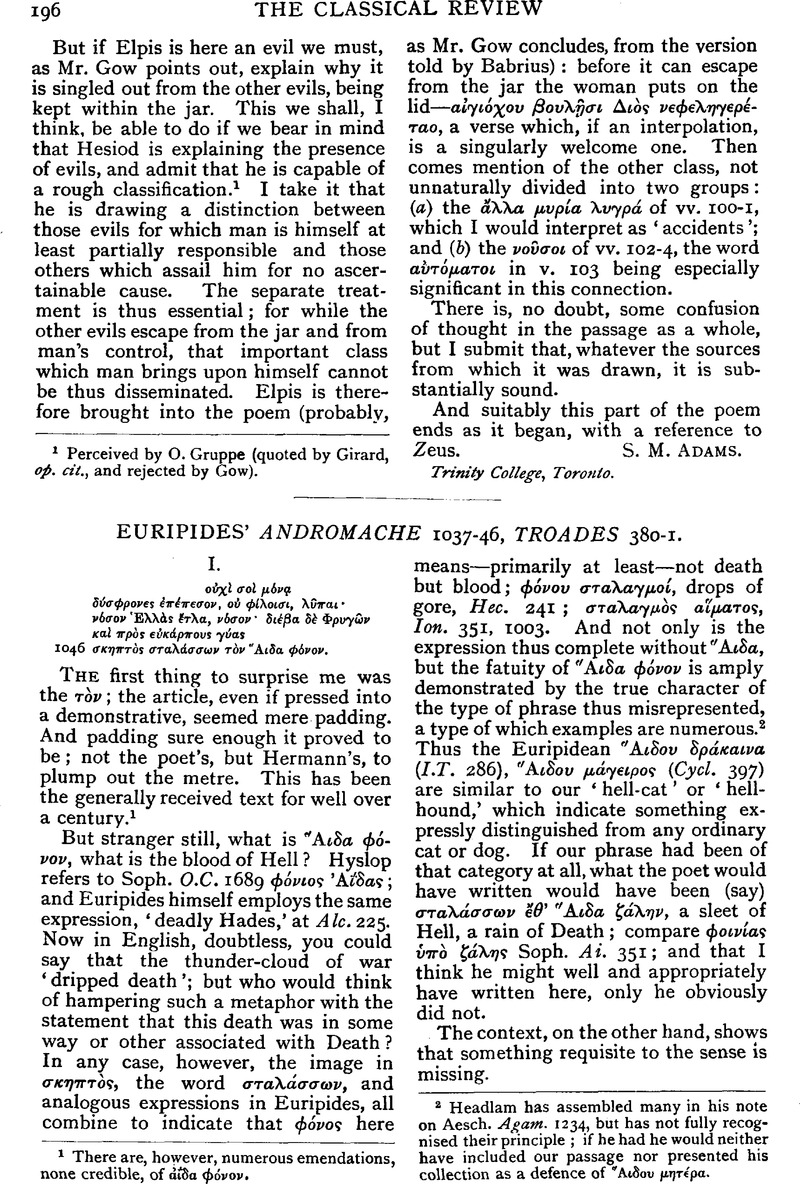No CrossRef data available.
Article contents
Euripides' Andromache 1037–46, Troades 380–1
Published online by Cambridge University Press: 27 October 2009
Abstract

- Type
- Review Article
- Information
- Copyright
- Copyright © The Classical Association 1932
References
page 196 note 1 There are, however, numerous emendations, none credible, of δα φνον.
page 196 note 2 Headlam has assembled many in his note on Aesch. Agam. 1234, but has not fully recognised their principle; if he had he would neither have included our passage nor presented his collection as a defence of Ἅιδου μητρα.
page 197 note 1 Hec. 503; Tro. 447, 747; I.T. 359; Hel. 239 (with Φρυγν not far before, 229); I.A. 337, 352, 359, 729, 825, 1200, 1310, 1335, 1414, 1469.
page 197 note 2 At a meeting of the Cambridge Philological Society on November 26, 1931.
page 197 note 3 Camb. Univ. Reporter, 1931–2, p. 435. The existing connexion of 1022–3 with 1027 is certainly both strong and good; but it is not invalidated by the transposition, only protracted.
page 198 note 1 E.g. the fate of Astyanax was noteworthy; Trojan children would normally be enslaved.
page 198 note 2 ἄλοχοι never = mulieres, despite one scholium and Musgrave (whose two examples themselves refute him).
page 198 note 3 For Schroeder too ignores it, his Eur. Cantica, p. 37, sanctioning the hiatus.
page 198 note 4 Of which my stock illustration is from this play—line 248.
page 198 note 5 δυστ. τοκ. as δειλοὺς τοκ. in Il. XXIII. 223.




